
| ||||||||||
|
||||||||||
Cheetah Notes 2Welcome to page 2 of images and brief notes about cheetahs, cheetah behaviour and cheetah sightings based on visits and photo safaris to game reserves and national parks in southern Africa. All images © Scotch Macaskill - for more, see Terms of Use. Cheetah with Impala Kill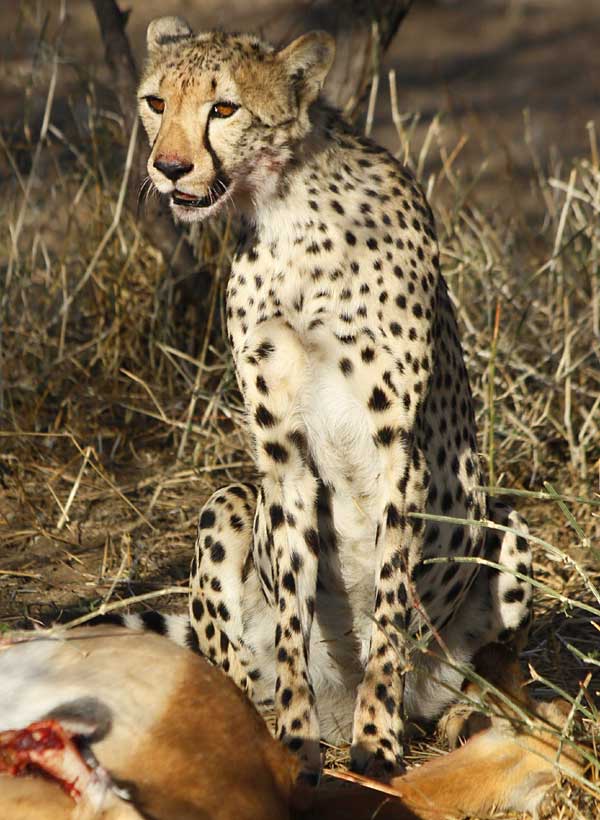 Caption: Cheetah (Acinonyx jubatus) takes a break from feeding on its kill, a female impala, to scan for any approaching scavengers, Mashatu Game Reserve,
Tuli Block, Botswana.
Caption: Cheetah (Acinonyx jubatus) takes a break from feeding on its kill, a female impala, to scan for any approaching scavengers, Mashatu Game Reserve,
Tuli Block, Botswana.
Camera: Canon EOS 50D; Lens: Canon EF 70-300mm f/4-5.6 IS USM; Focal length: 200mm; Shutter speed: 1/1250; Aperture: f/7.1; ISO: 400
Additional Info: The cheetah, once it had eaten its fill, moved away from the kill to rest in the shade of some nearby shrubs.
After stretching and yawning, it began carefully grooming and cleaning itself, very like a domestic cat would do. In the picture (right), it’s using it’s tongue to lick and clean its foreleg. Note the visible, unsheathed claws. The cheetah’s claws — used mainly for providing traction during its short, blistering runs and not as weapons of attack — can only be partially retracted. In contrast to this other cats, which either stalk or pounce on their prey, have claws that are sheathed until required, ensuring the claws remain sharp and ready for use. We were interested that the first scavenger to arrive and start feeding on the remains of the kill was a tawny eagle, beating the resident
jackals and hyenas to this free meal. Camera: Canon EOS 450D (Canon Rebel XSi 12.2MP); Lens: Canon EF 70-300mm f/4-5.6 IS USM; Focal length: 105mm; Shutter speed: 1/125; Aperture: f/8; ISO: 400; Additional Info: Cheetah mark their territories by spraying urine, usually on elevated observation points such as large rocks and tree stumps. These marking sites are regularly visited by both resident and itinerant cheetah. In this way they gather information about the local cheetah social structure. Cheetah Characteristics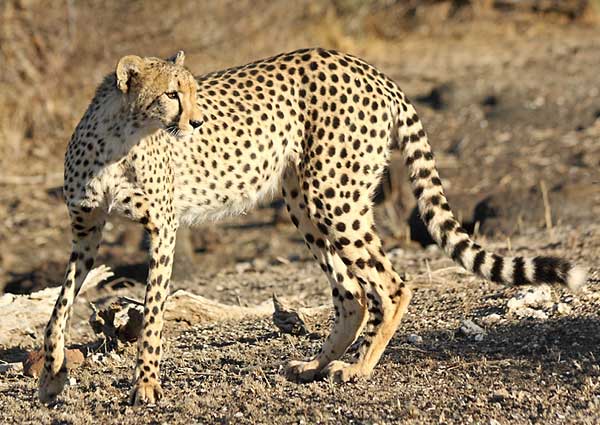 This Cheetah photograph, taken as the sleek cat pauses briefly and turns its head while standing side-on, illustrates many of the cheetah’s characteristic or
distinguishing features.
This Cheetah photograph, taken as the sleek cat pauses briefly and turns its head while standing side-on, illustrates many of the cheetah’s characteristic or
distinguishing features.
For more about cheetah, see Cheetah Information Cheetah Using Tree Stump for Elevation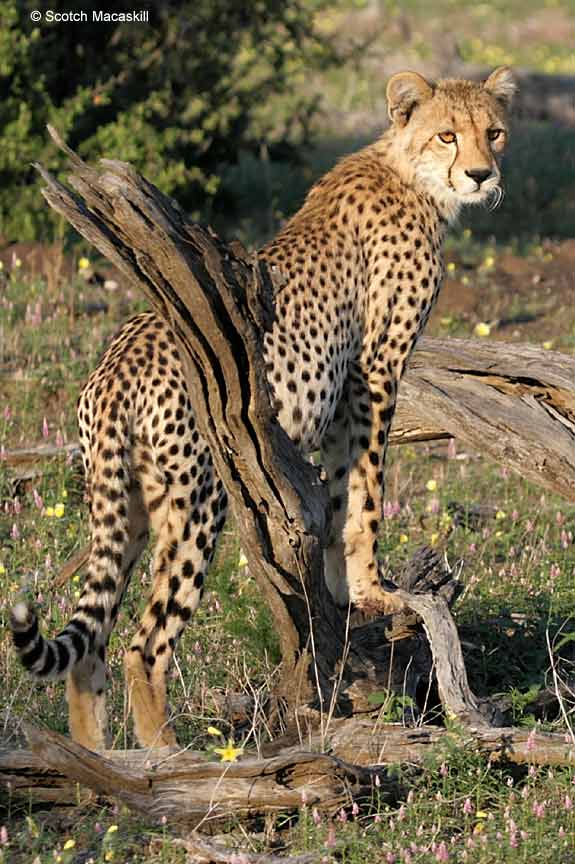
Caption: Young cheetah (Acinonyx jubatus) using tree stump for elevation as it scans its surroundings, Mashatu Game Reserve, Tuli Block, Botswana. Camera: Canon EOS 400D; Lens: Canon 100-400 IS Zoom; Focal Length: 170mm; Shutter speed: 1/500; Aperture: f7.1; ISO: 400. Additional Info: Predators, including cheetahs, often use elevation as vantage points, not only to scan for prey, but also for protection. Cheetahs are known to sleep on termite mounds at night to reduce the risk of being surprised and attacked by lions. Jump to cheetah Notes 1 or return to Wildlife Notes Home |
SEE ALSO: | |||||||||
|
Contact Details: Scotch Macaskill, Dirt Road Traders, Currys Post Road, Howick, KwaZulu-Natal, South Africa. Tel: +27 (0)82 578 2329. Privacy: Your privacy is guaranteed. See our Privacy Policy for more. This site accepts advertising and other forms of compensation - see Disclosure and Advertising for details. Site updated: 2022. Copyright © 2002 - 2022 Scotch Macaskill | ||||||||||
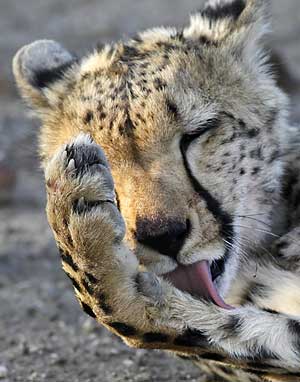
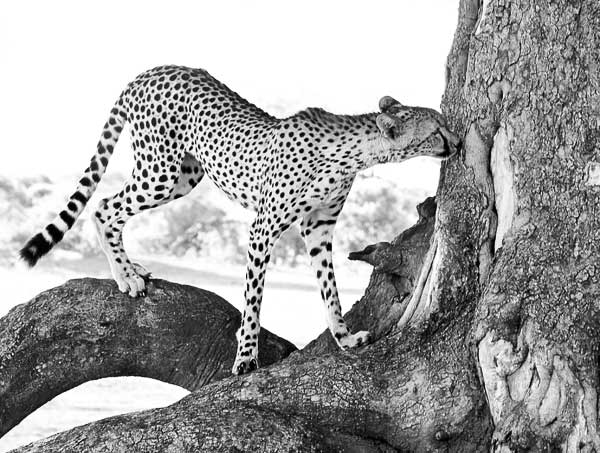 Caption: Cheetah on tree stump sniffs carefully for scent markings left by other cheetah, Mashatu Game Reserve, Botswana.
Caption: Cheetah on tree stump sniffs carefully for scent markings left by other cheetah, Mashatu Game Reserve, Botswana.